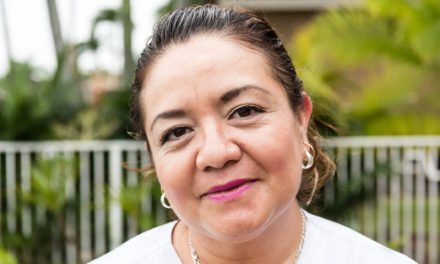
**Before getting into this week’s post, we want to explain our title choice for this series. We recognize that it is not grammatically correct, and we wanted to share why we made the intentional choice to use it. “There’s levels to this” comes from rapper Meek Mill’s song “Levels,” and has generally become a popular phrase in black, urban culture to denote the complexity of a situation or idea. In talking about systems, we want to honor the complexity of the topic, and we also wanted to do it in a way that celebrates a cultural understanding of that complexity, one that often stems from marginalized cultures for whom inequity is more prevalent, obvious, and consequential.
Last week, we kicked off this series by introducing systems and the levels of systems at which we see inequity manifest. We began with the idea that understanding systems is foundational to addressing inequity because we have to create solutions that address these multiple levels.
Today we will take a deeper dive into the interpersonal level of systems. As defined in last week’s post, the interpersonal level of systemic inequity encompasses our biases, perceptions, personality, and cultural competency. Our level of cultural competence and the extent to which we are aware of our biases influence our ability to navigate group dynamics and understand institutional structures.
As with all of our work, the first step in exploring the interpersonal level of systems is making the unconscious conscious and increasing our self-understanding. Who am I? How did I become the person I am? What is my culture? What are my biases? These are the basic questions that help us to not only understand who we are, but also how we interact with others in our daily lives.
I am amazed at how many people have not even taken this step of asking these basic questions. I am amazed at how many people don’t believe they have a culture and perhaps believe that their cultural values are just “the truth”. But that’s how we got to this polarized sociopolitical time – because we too often understand our cultural beliefs and values to be truths that others should be judged against rather than exactly what they are – beliefs and values that come from a particular cultural background that may or may not ring true for others.
So, understanding the world and ourselves on an interpersonal level does not just mean asking those questions about who we are and what we believe in. It means asking them of ourselves, answering them, and then acknowledging that our truths are not everyone’s truth. It means listening to the ways that others answer these questions and being able to share in our commonalities and explore our differences without assuming any experience has more truth an another.
As we navigate this level of systems, we will begin to see patterns and groups and categories, and the implications of belonging to those or not. The fact that I am an upper middle-class, white, southern woman has endless implications in how I see the world and how the world sees me. But this self-understanding is the first step. It’s the first step to unpacking the ways that my particular cultural identity shapes my experience of the world and my place in dismantling systemic injustice. I need to unpack my cultural values, my understanding of others’ cultures, and my judgments and biases against my cultural others. Those are the building blocks on which we understand group identity and power and privilege. Those are the building blocks on which we can explore the complexity of how our institutions perpetuate those group dynamics.
Before we can understand the world, we have to begin understanding ourselves. Because although we are a part of these very complex and intertwining systems of inequity and culture and power and privilege, we are also worlds unto ourselves. As the poet Rumi wrote, “You are not a drop in the ocean. You are the entire ocean in a drop.” So, we have oceans to explore.
This cultural identity checklist may be a good place to start:
[dropshadowbox align=”none” effect=”none” width=”auto” height=”” background_color=”#dddddd” border_width=”1″ border_color=”#f2cf23″ ]
- Who am I culturally? Where did I grow up? What was the culture of my community? What did I learn about right/wrong or good/bad?
- What are my values and beliefs, and how have they changed over time?
- What is my cultural identity? (e.g. race/ethnicity, generation, religion, education, socio-economic status)
- How does my cultural identity shape who I am and how I think?
- What is my orientation towards difference?
- “Us/Them:” People are different, but I think my cultural group’s norms are better.
- “Color-Blind:” We are all the same as humans. We are more alike than different.
- “Differences Make a Difference:” Differences are normal, inevitable, and something to learn about.
- What is the history of the other group—from their perspective?
- Expand your understanding by engaging in experiences or new learning (e.g. books, research, biopics, etc.) that reflect the perspectives of your ‘others.’
- What do I know about the values and beliefs of other groups, and how they were shaped?
- Do I understand power & privilege?
- Do I belong to cultural identity groups that have traditionally held power/privilege or been historically marginalized?
- What are the underlying systems that impact outcomes for the group(s)?
- Challenge inclinations or biases that position inequities as result of ‘cultural flaws’ of the group. Dig deeper.
- What do I know in general about cultural differences?
- Consider differences that may exist in communication styles, cultural norms, individualistic vs. group-oriented cultures, etc.
[/dropshadowbox]
(Source: Mary-Frances Winters, We Can’t Talk About That at Work!: How to Talk About Race, Religion, Politics, and Other Polarizing Topics, 2017)


















